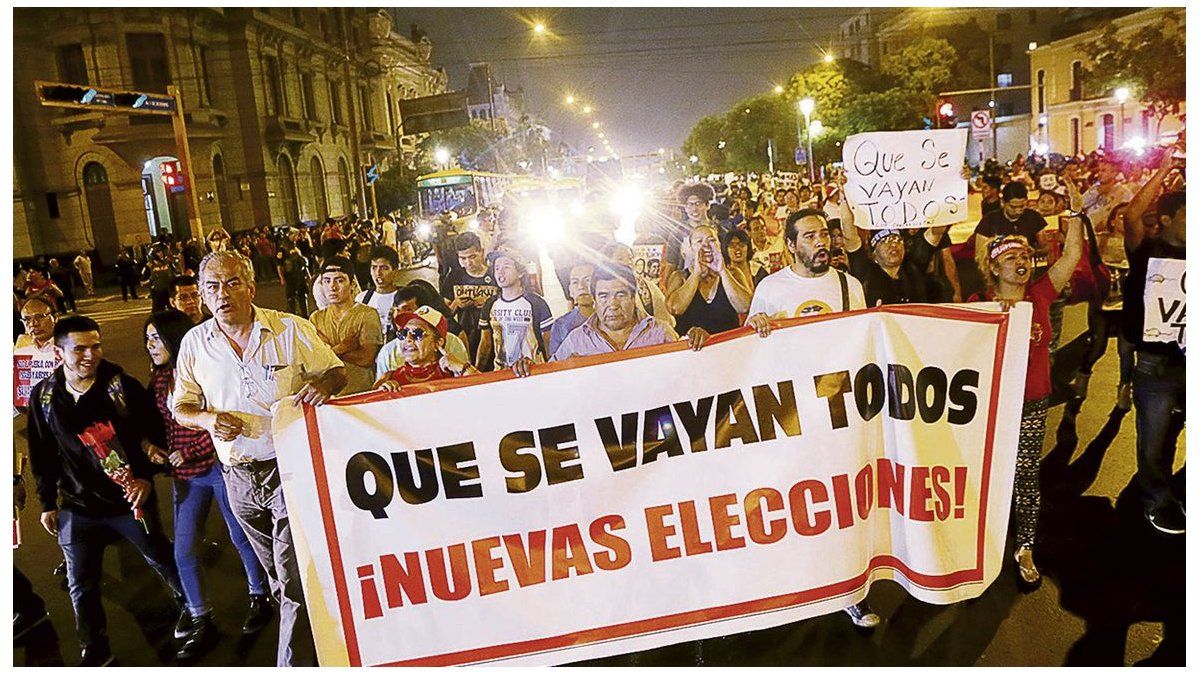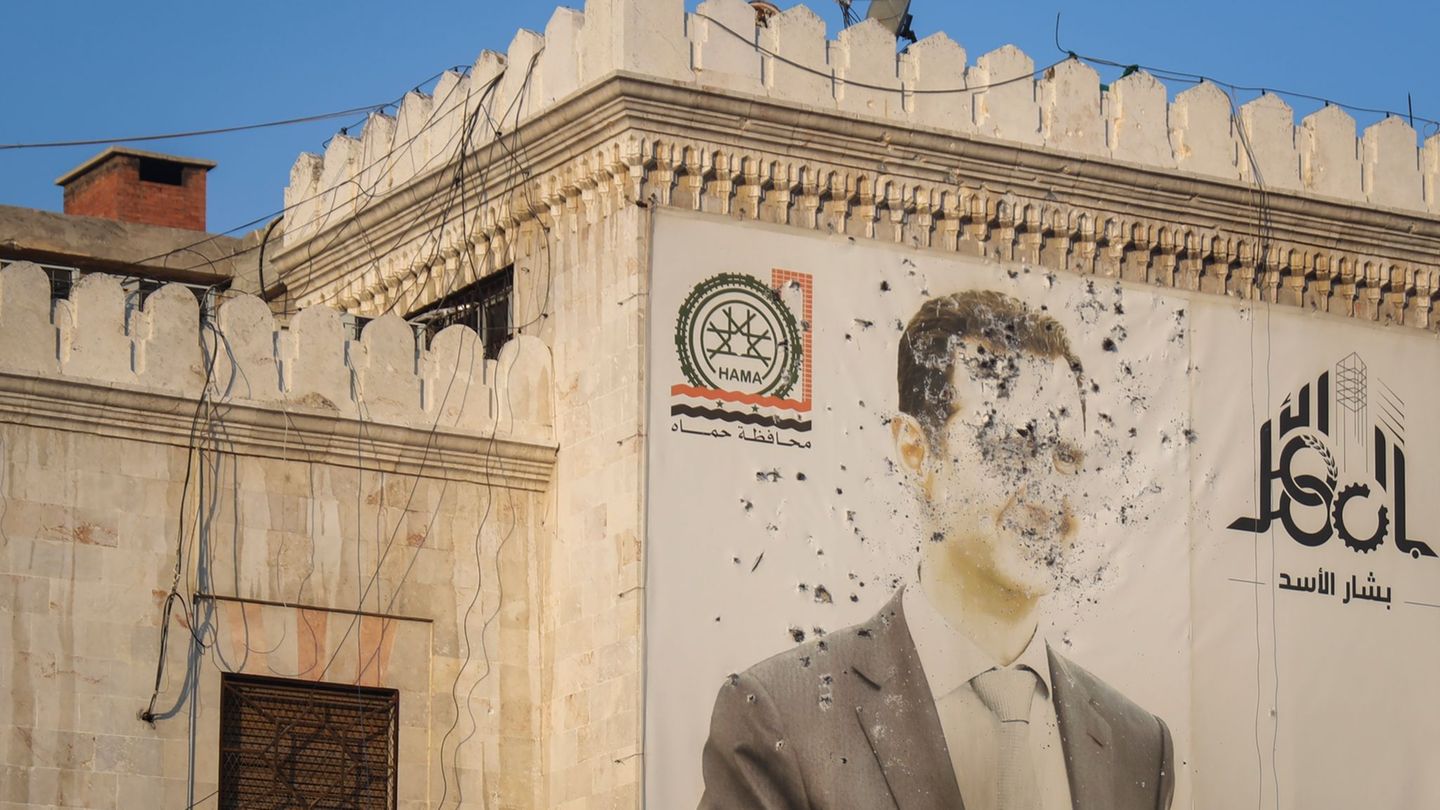“How strange that only in Lime request the vacancy (presidential impeachment). Here the majority is not in favor of the vacancy. What we want is for the 1993 Constitution to be changed, because it has made the big monopolies make and break prices,” said a resident of the city of Icaquoted by the Lima newspaper La República.
The issue was put on the table by the governor of the department of Puno, Germán Alejo, who, at a public meeting of the Council of Ministers, in the presence of Castillo, demanded to return to the issue, since, he argued, the difficulty of the moment requires great solutions. .
In this context, the political scientist Roger Santa Cruz considered, in dialogue with Télam, that the possibility of changing the Constitution is latent and “waiting to find its political course”, because what is at stake is not only the figure of Pedro Castillo, but the political structure in general.
The change of the Constitution of Peru, drafted “in the image and likeness” of the then president Alberto Fujimori, was always on the agenda of the left and center left. The current government assumed the flag but abandoned it in the midst of the crisis that has accompanied it from the beginning.
Peru mobilized last week to protest against the rise in the cost of living, which the official discourse attributes exclusively to the Russian-Ukrainian conflict, but which, according to the opposition, has worsened due to the lack of government reaction.
Six people died in three departments -two of them directly in clashes with the Police-, while Lima was paralyzed on Tuesday for several hours by a surprise daytime curfew that made criticism of the president grow even more, highly resisted in the city from the beginning.
What is striking about the conferences is that they were not limited to Lima, but spread throughout the Andes, which last year gave massive support to Pedro Castillo. In fact, the most serious disturbances occurred in the department of Junincradle and stronghold of the ruling party Free Peru and unique in that this Marxist-Leninist collective is a regional government.
For Santa Cruz, as for many other analysts, the fact that Castillo came out comparatively well is due to the fact that Congress, which appears as the institutional face of the opposition, is even more resisted by public opinion, which explains why the social movements do not want be seen as a caboose of the radical right.
The parties People’s Force (PF) People’s Renewal (PR) and Country advances, of “hard line”, they initiated from the first moment actions to vacate Pedro Castillo and have already failed twice in formal attempts. That, paradoxically, seems to have become oxygen for the Government, despite his constant “unforced errors”.
If Castillo were to leave power via impeachment, he would have to be replaced by Vice President Dina Boluarte, but spokespersons for FP, RP and Avanza País have already made it clear that they would not accept her, so the head of state would go to the president of Congress, Maricarmen Alva, whose rejection figures are similar to those of the president.
The cry “for everyone to leave”, which without visible faces demands early elections so that the Executive and the Legislative leave soon and not in 2026, is also hampered because it would require a commitment from both powers.
Santa Cruz, from the Pedro Ruiz Gallo and Antonio Ruiz de Montoya universities, therefore insists that the crisis is institutional and the solutions would have to go through a process that includes constitutional reforms, although at the moment it is not clear how this could materialize.
The confusion was summed up by the head of the Public Policy Observatory of the Universidad del Pacífico, Alexandra Ames: “In Peru, anything can happen.” But “My prognosis is not good, the president is in intensive care and the discontent of the population is going to increase”, supplemented in the weekly Hildebrandt in his Thirteen.
After the events of last week, Pedro Castillo declared himself optimistic: “I believe and have faith that the political moment in which we have been involved has come to an end and we must show that we can work with transparency,” he said at the beginning a public meeting of the Council of Ministers in Huancayo, the capital of Junín.
That meeting and a similar one held later in Puno would seem to indicate that the president is seeking to reconcile with the Andes, where support for his administration is deteriorating despite the distance between these sectors and Lima and the classical right.
In fact, according to residents of Junín, one of the events that most outraged them was that Castillo said that the protests in that region were due to the fact that their leaders – transporters and farmers, fundamentally – were paid by their enemies.
In Santa Cruz’s opinion, what he would have to do Pedro Castillo is to retake the flags of social change that -in addition to the discredit of his rival, Keiko Fujimori- explain his electoral victory. The problem, he warns, is that the president “does not allow himself to be helped.”
Castillo began to face the shortage with measures such as the temporary elimination of the Selective Consumption Tax for fuels and the General Sales Tax for basic necessities, although in the latter there was controversy because Congress wanted to include the exclusive loin fine, pheasant, goose or guinea fowl.
For analysts, the president will also have to analyze the continuity of his ministerial chief of staff, Hannibal Torres, generator of various controversies, the most recent when he publicly praised Hitler and Mussolini. The problem is that he has already had four ministerial teams, which is unusual for such a short period of time.
Peruvians, upset with their government and their Congress, will thus face Passion Week with the increasingly weakened hope that formulas will emerge from the political class that will allow them to overcome the tables and face real problems.
Source: Ambito
David William is a talented author who has made a name for himself in the world of writing. He is a professional author who writes on a wide range of topics, from general interest to opinion news. David is currently working as a writer at 24 hours worlds where he brings his unique perspective and in-depth research to his articles, making them both informative and engaging.




